If you are expanding your small business, you may have heard of the platform Constant Contact. Constant Contact is an online marketing platform that provides a comprehensive suite of tools for small businesses to build, maintain, and strengthen their customer relationships.
The service focuses on helping small businesses target new customers through email campaigns, social media ads, surveys, and more. Constant Contact also offers an array of pricing options to fit any budget.
But what makes Constant Contact unique compared to other marketing apps? How do we use it? In this guide, we'll explain what Constant Contact is, how to use it, and the various pricing packages available. We'll finish by introducing IFTTT, our automation service that helps connect email marketing tools to hundreds of other apps and services.
What is Constant Contact?
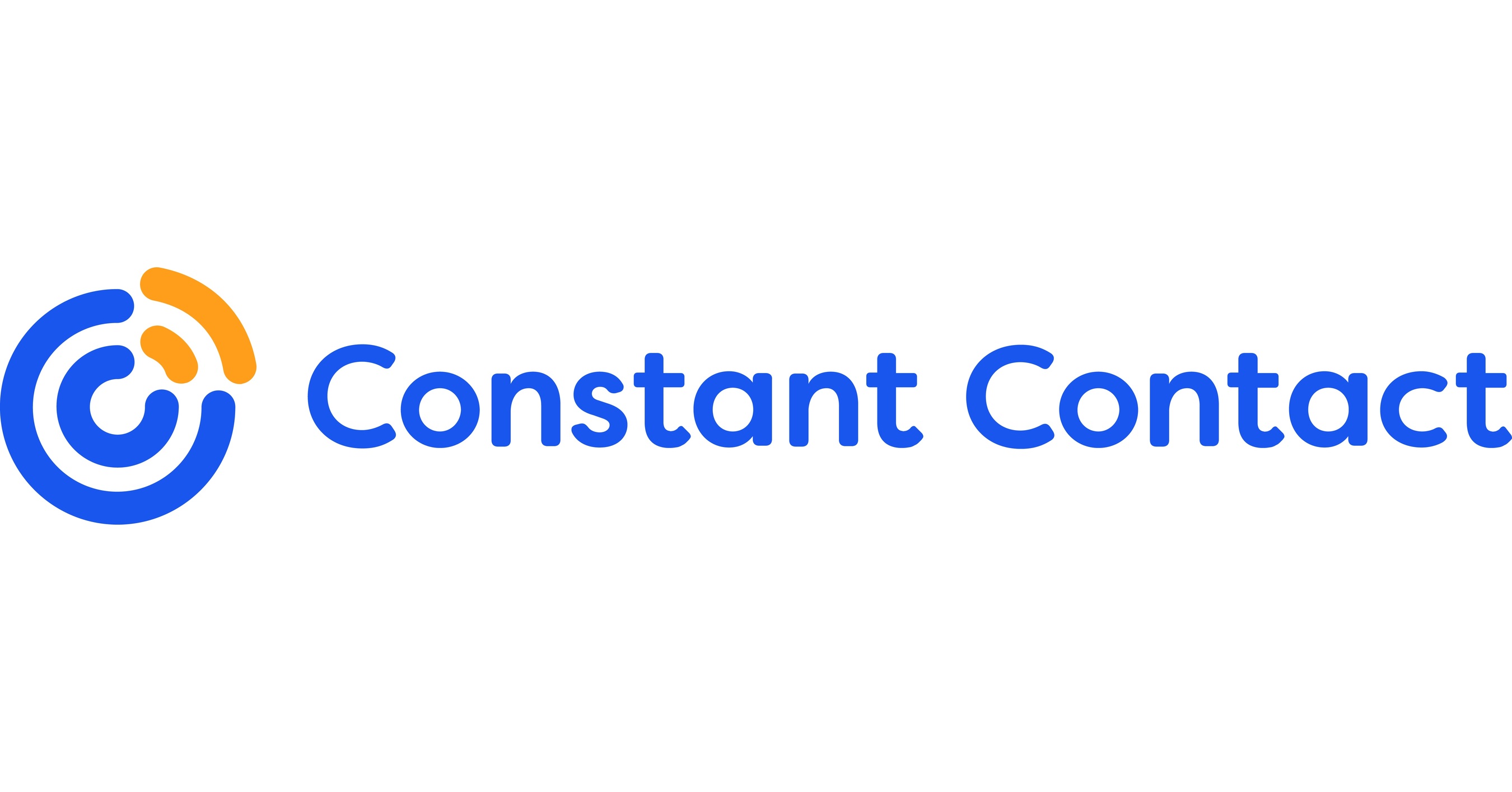
Constant Contact was founded in the late 90s and is headquartered in Waltham, Massachusetts. Over the years, the company has continued to evolve and expand its offerings, maintaining its position as a leader in email marketing.
From designing marketing pieces to importing/exporting contacts and data, CC serves as a go-to resource for many businesses. The platform provides hundreds of thousands of small businesses around the world with the online marketing tools they need.
In addition to email marketing, Constant Contact also provides other online marketing campaigns, which businesses can leverage to meet their specific goals. For those looking to try out the service, they offer a free trial, making it easy for businesses to test out the platform and see if it meets their needs.
Useful features of Constant Contact
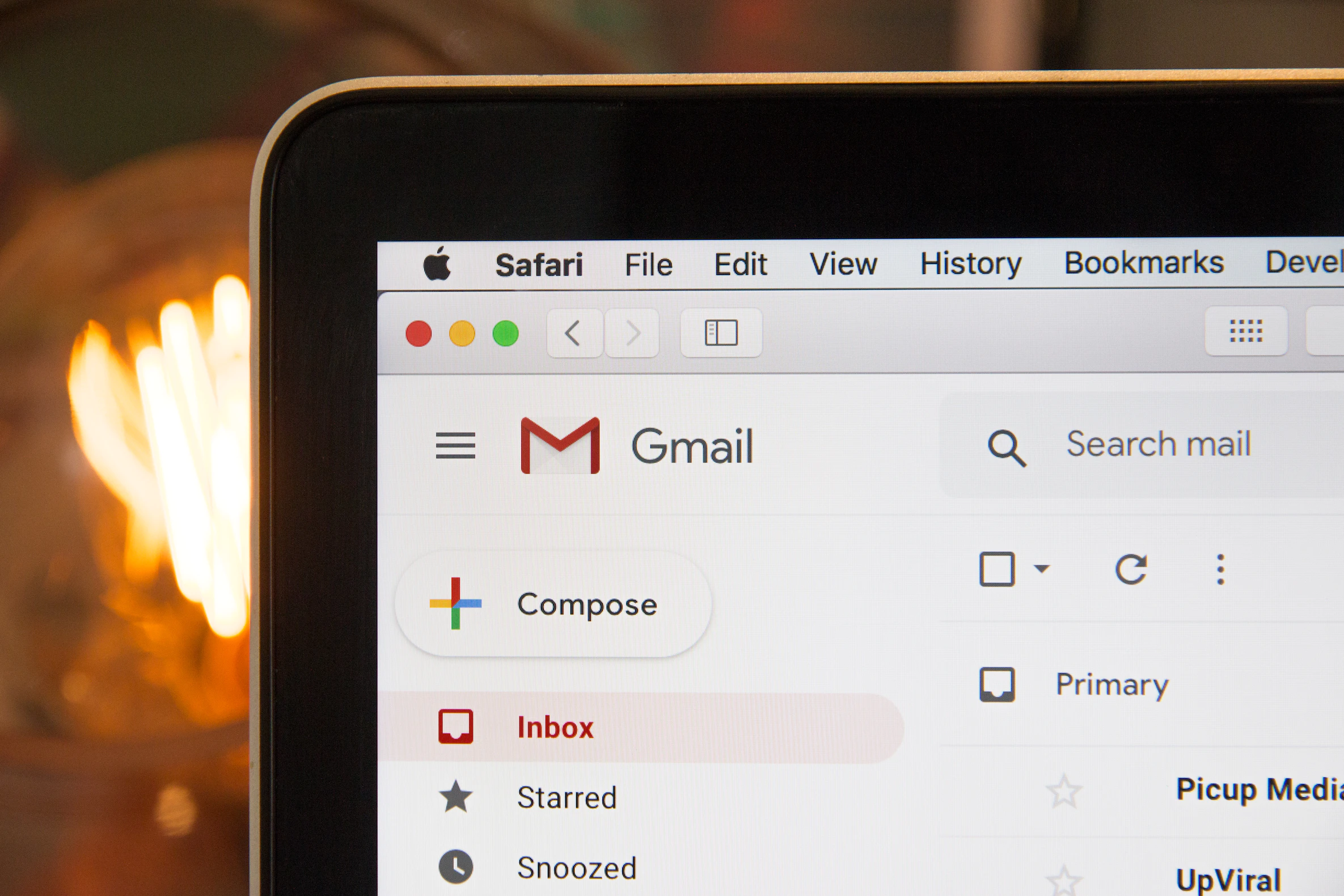
Constant Contact provides a wide range of features that cater to various aspects of email marketing and beyond. Here are some key features:
Email marketing: Users can create professional emails to find new customers and drive sales1. The platform also offers advanced automation features such as Event Marketing, Surveys, Online Donations, and more.
Marketing automation: This feature allows users to put their messaging on autopilot, which includes sending welcome emails, birthday and anniversary emails, and resending emails.
Segmentation: Users can segment their audience based on various criteria, allowing for more targeted and personalized marketing.
A/B testing: This feature allows users to test different versions of their emails to see which one performs better.
Social media integration: Users can create and post social posts and ads on platforms like Google, Facebook, and Instagram.
These features have great benefits for businesses looking to expand their reach and bring in more customers. Tools like automated emails and segmentation enable businesses to send personalized messages to different audience segments, improve engagement, and boost conversion rates.
The easiest guide on how to use Constant Contact
Here's a simple step-by-step guide on how to get started with Constant Contact:
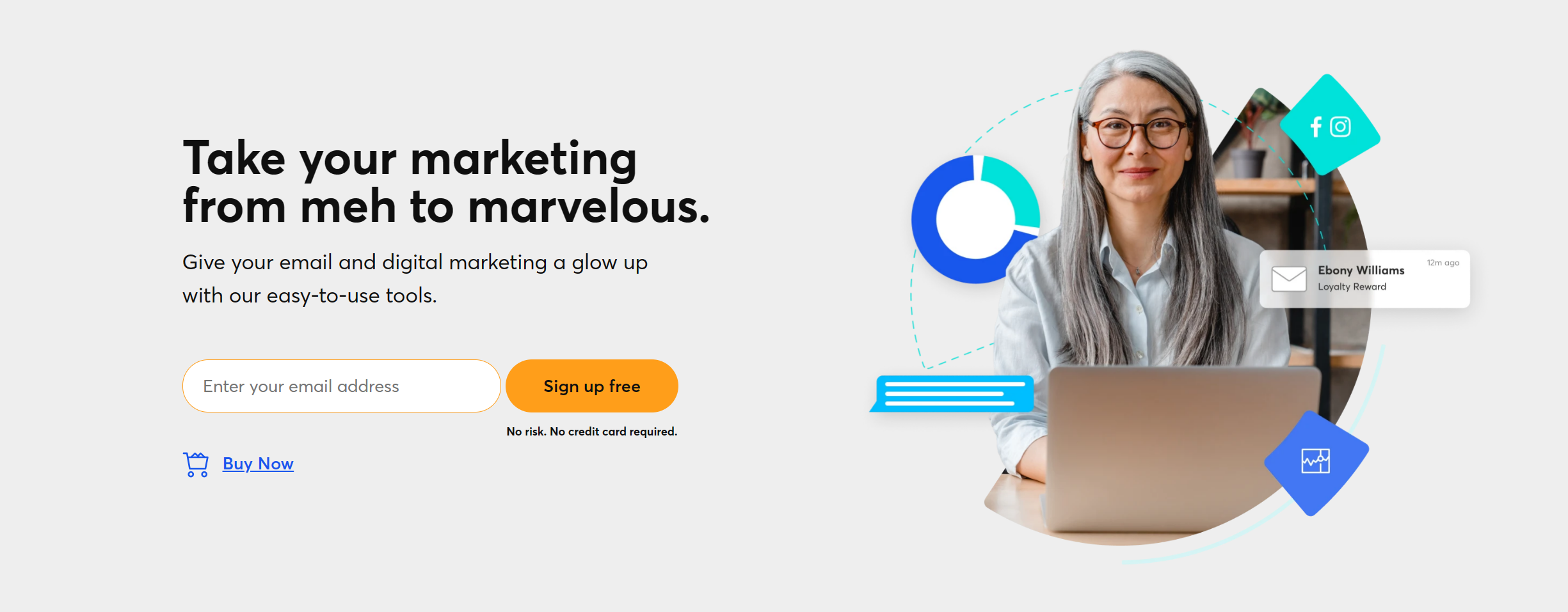
1. Create an account: Visit the Constant Contact website and click on the "Sign Up Free" button. Fill in your email address, name, and password to create an account.
Upon signing up, you'll be asked to select your industry and your level of marketing experience. This helps Constant Contact tailor your experience.
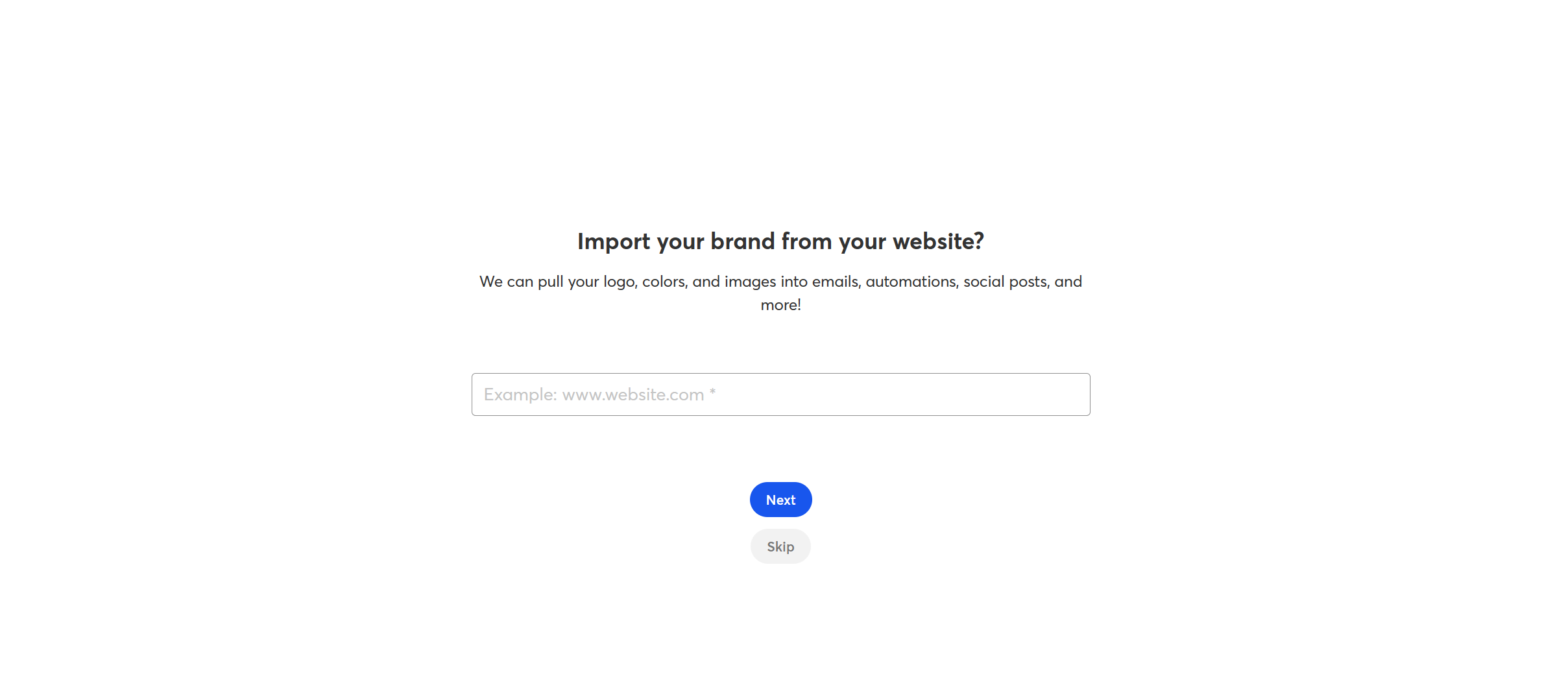
2. Import contacts: You can manually add contacts or import them from other tools like Gmail, Outlook, or Excel.
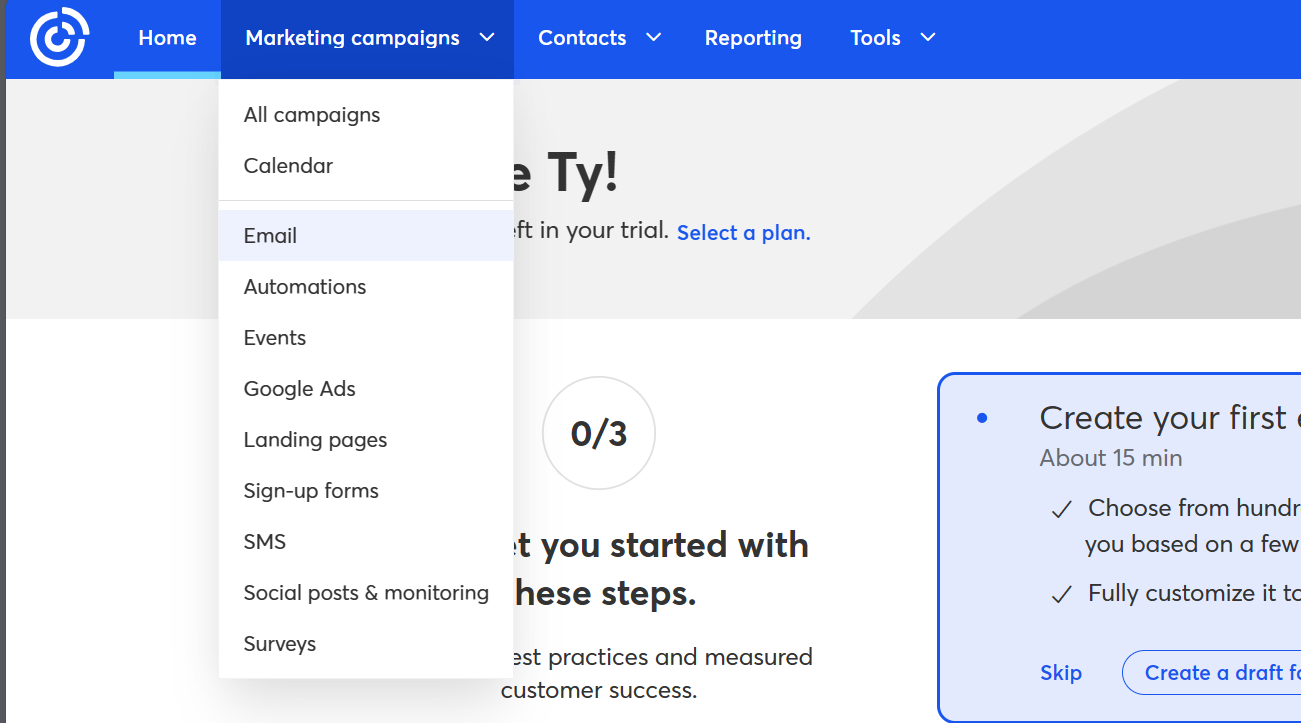
3. Create an email campaign: Navigate to the "Campaigns" tab. Choose "Email" and select a template that fits your needs. Customize the template with your own text, images, and branding.
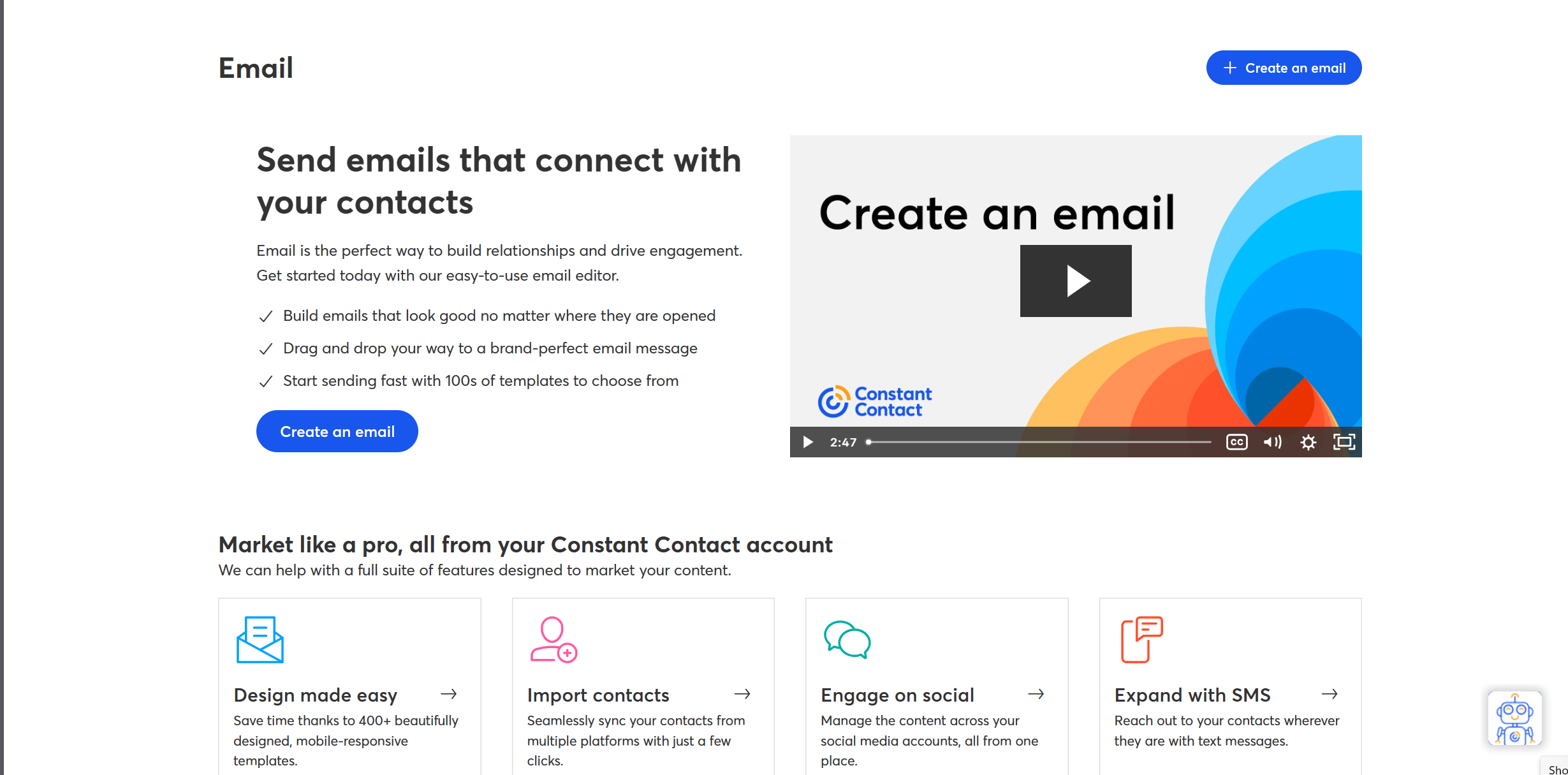
4. Send or schedule the email: Once you're happy with your email, you can either send it immediately or schedule it for a later date.
Constant Contact pricing outline
Upon creating your account, you will be given a 60-day free trial with limited features. If you choose to use Constant Contact for your marketing needs, it's a good idea to find an upgrade suitable for your business.
Constant Contact offers a variety of pricing options to accommodate different needs and subscriber counts. The pricing typically depends on the number of email contacts you have.
Lite Plan: This is the most basic plan, starting at $12 per month. It's suitable for businesses with a smaller contact list, as it covers up to 500 contacts.
Standard Plan: This plan starts at $35 per month, providing more advanced features like automation, segmentation, and A/B testing. The price varies based on the number of contacts, but allows you to send 12x as many emails and contacts per month.
Premium Plan: This is the highest-tier plan, starting at $80 per month. It provides the most comprehensive set of features and is intended for larger businesses with extensive email marketing needs. This includes hosting unlimited users and up to 24x email sends per monthly contacts.
Pros and cons of Constant Contact
Constant Contact, like any tool, has its strengths and weaknesses. Below is a quick discussion of the pros and cons you need to know when making a decision:
Pros:
Unlimited Emails: Users can send unlimited emails and pay based on the size of their contact list.
Ease of use: Constant Contact is known for its clean and straightforward user interface, making it user-friendly.
Value for money: It provides great value for money, offering a comprehensive set of marketing tools at an affordable price.
Scheduled emails: The platform allows users to schedule emails and track who is responding.
Cons:
Limited automation: The platform's automation capabilities are somewhat limited compared to other email marketing tools.
Contact management issue: A disadvantage that some users have experienced is that anyone with the same email address gets merged into a single contact, which can cause confusion.
Cancellation difficulty: Users have reported that it can be difficult to cancel the account once it's been set up.
Constant Contact has many strengths that make it a popular choice among small businesses. However, it's important for potential users to consider the cons and ensure it aligns with their specific needs before choosing this platform.
Alternatives to Constant Contact
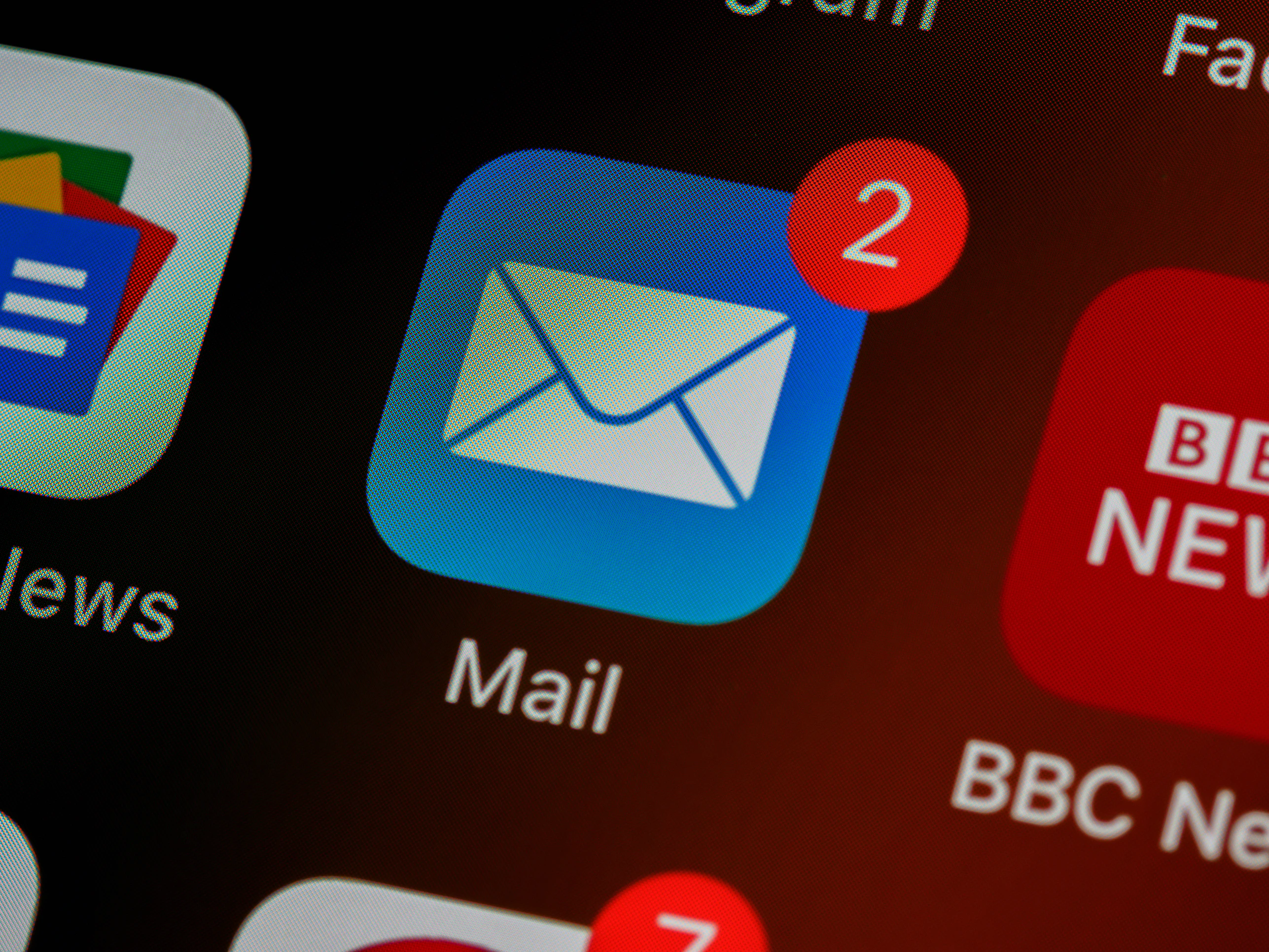
If you are looking for other options instead of Constant Contact, luckily, there are many great ones to choose from.
Mailchimp is the first on our list and has established itself as a household name due to its vast popularity. Known for its user-friendly interface and extensive features, Mailchimp also provides automation, segmentation, and analytics.
A good platform that offers email and SMS marketing services is Sendinblue. It includes transactional emails, SMS messages, and even a chat feature.
AWeber is another popular email marketing tool, known for its excellent customer service and wide range of templates, and Benchmark Email offers an intuitive and easy-to-use interface with a variety of design and automation features.
Constant Contact vs Mailchimp

When comparing Constant Contact vs Mailchimp, both platforms offer a wide range of features to help you create effective email marketing campaigns. Constant Contact is known for its intuitive user interface and comprehensive customer service. It also offers a free trial period and a variety of templates for design.
Mailchimp, on the other hand, is known for its extensive features and automation capabilities. It also has a free plan for those just starting out.
Each of these tools has its own strengths and weaknesses, and the best choice depends on the specific needs and budget of your business. We would recommend trying Mailchimp, as it offers the most integrations with other services through our app, IFTTT.
More effective email marketing with IFTTT
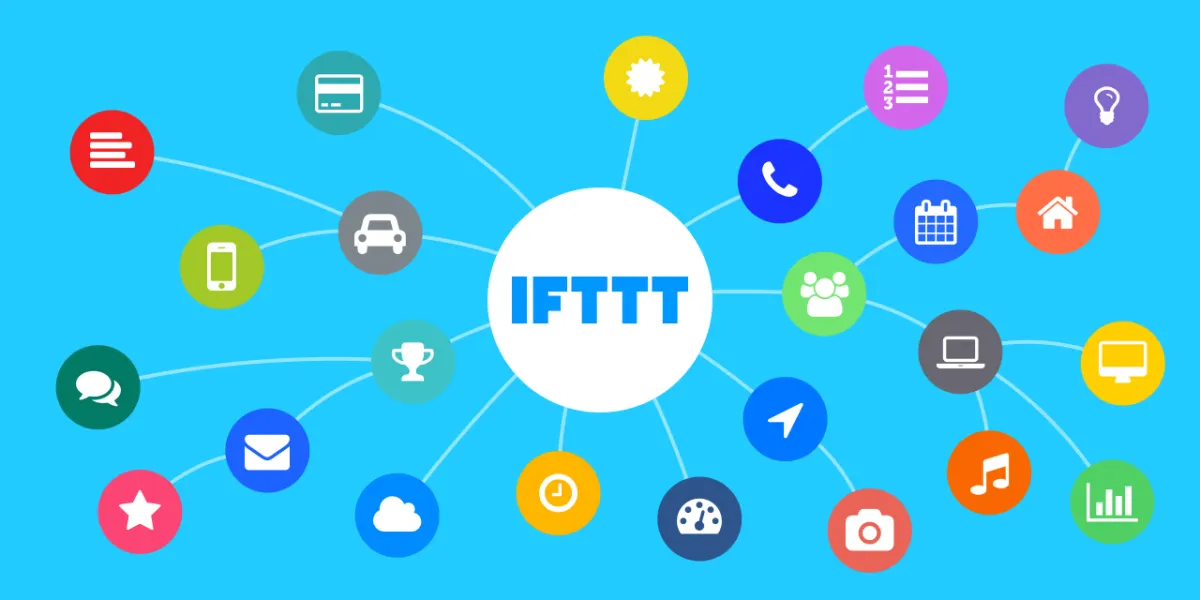
With IFTTT, email marketing doesn't have to be a chore. In fact, you won't even have to think about your email marketing campaigns at all! IFTTT can automate the process of sending emails, gaining leads, and more with your chosen email service provider, allowing you to focus on other parts of your business.
Read on to hear about our mission and our top picks for email marketing automations with IFTTT.
What is IFTTT?
IFTTT, an acronym for "If This Then That," is our free web-based service and mobile app designed to boost productivity by automating tasks. It works by creating connections between popular apps and services, allowing them to work together seamlessly.
The basic idea behind IFTTT is to create "applets" or sets of instructions that trigger when certain conditions are met. This can be turning on the lights automatically when you enter your house, for example.
Founded in 2011, IFTTT has been used by over 25 million individuals to automate both business and home tasks, saving time and increasing efficiency. It's commonly used to connect disparate services and systems, making all products and services work well together in a way that instills user confidence. Best of all, it's free and only takes a couple of minutes to set up.
Top email marketing Applets with IFTTT
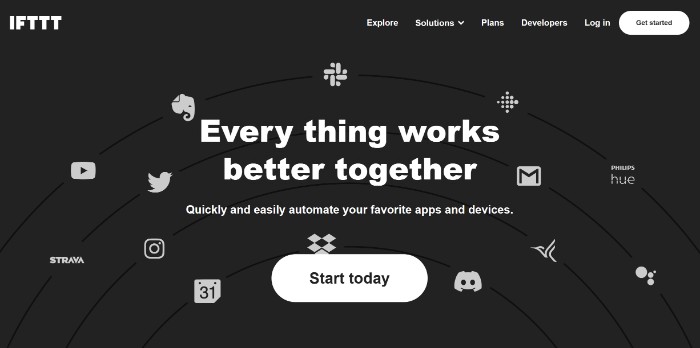
Create Mailchimp subscribers from new Google Forms submissions
Simplify and automate your lead to email marketing flow. This Applet will help you collect lead data from a Google Form and automatically create a Mailchimp subscriber for you.
When SurveyMonkey contacts are added, then Validate an email address in TuxMailer.
We all know how email deliverability affects our campaign ROI. This will verify your contact's email addresses in TuxMailer when a new contact is added in SurveyMonkey.
When I get a new lead in Facebook Lead Ads, Add them as a new subscriber to Mailchimp
This powerful Applet can help streamline the entire lead-to-email process. When you get a new lead in Facebook Lead Ads, they will be automatically added as a new subscriber to Mailchimp.
To enable these Applets and millions more (yes, millions), try IFTTT today for free!

